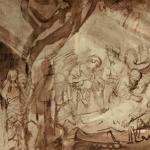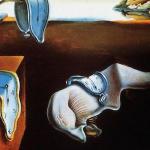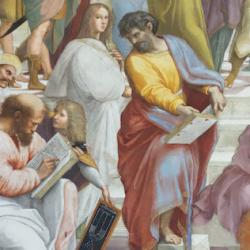Philip Terzian isn’t much disturbed by the tumult in the Republican Party.
He concedes that the Party is going through some changes, whose outcome remains to be seen: “The coalition that propelled Donald Trump into the White House may be a harbinger of the party’s future, or it might have been a symptom of his opponent’s weakness. Trump’s success might be a premonition of national crisis, or it might be a reminder that leaders—FDR, Ike, Reagan, Clinton—count for more than we care to acknowledge in democracy.”
But, he argues, it’s business as usual:”it is possible to argue that internal disunity—factions and tendencies within a single party—is far more commonplace, surely a more natural instinct, than harmony in American political history. This was certainly true in the 19th century, which featured (among other things) the demise of the Federalists, the rise and fall of the Whigs, a secession movement, and Civil War, and is equally true within living memory. Democrats look backward to the Roosevelt coalition, which dominated politics for two generations, with awe—and no wonder. Beginning in 1932, Franklin Roosevelt presided over a disparate alliance of Midwestern union members, rural Southern segregationists, and urban Catholics and Jews in the North, which only fell apart in the late 1960s.”
Besides, he points out, by world standards the US has a remarkably stable political system: “We are a nation of 325 million people, and there are two—count ’em, two—political parties of any significance. The interludes when unity prevails in the GOP are briefer than the long days of discord. For that matter, comparisons between Lebanese democracy and ours only dramatize the differences; fractious Lebanon, a nation of just 6 million torn by civil war, has (by my rough count) over 35 political parties loosely connected into rival alliances.”
He thinks the US system is obviously superior, but I wonder if it doesn’t more reflect Tocqueville’s insight into the homogeneity of the American mind. And, while Terzian’s brand of jaundiced realism is always an antidote to enthusiasms, I suspect the transitions we’re seeing are deeper than he lets on.
The cynic is right; Everyone thinks he lives at the edge of epochal change. But some of those people turn out to be right.












